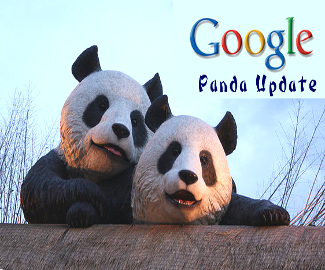 2011 saw many algorithm updates rolled out by the Big G: Google Panda 2.5 came in October, Panda 3.1 came in November—then Google made the announcement that no more updates would happen during the holidays (awww). Well, the holidays are over and Panda 3.2 was rolled out on January 18, 2012.
2011 saw many algorithm updates rolled out by the Big G: Google Panda 2.5 came in October, Panda 3.1 came in November—then Google made the announcement that no more updates would happen during the holidays (awww). Well, the holidays are over and Panda 3.2 was rolled out on January 18, 2012.
Although Google has stated Panda 3.2 is simply a data refresh of Panda 3.1 with no algorithm changes, changes always seem to happen when any update is released. Here is what you need to know about Google’s updates, and what you need to do to stay on Google’s good side.
Why The Updates?
Google’s Panda algorithm updates are designed to improve the quality of online content—giving less rank to low-quality pages, pages that have external duplicates or pages with dormant behavior. Sites using content farms and other types of article generators will likely see a drop in rank, while sites incorporating fresh, original copy will likely see a spike.
Keep Your Content Original
As stated, the primary goal of Google’s Panda updates is to rank sites based on quality content. If you have poor content—poor being content saturated with keywords, irrelevant content, or duplicate content—your site will rank poorly with this updates. Keep your content original, tight and focused, and good Google standings will follow.
Keep Your Content Updated
You may have high quality content, but if you never update your website, blogs, etc., your content becomes stale and might as well be poor content. It’s ideal to update your content daily with fresh, relevant stories and posts, but if this is too much, you need to update it at least 2-3 times a week. If this is too much to ask, you’re in the wrong business and Google should turn their back on your site.
Don’t Cloak
Cloaking means your site shows different information to a searchbot than it shows a real user—and Google hates this. According to Google, “Cloaking refers to the practice of presenting different content or URLs to users and search engines; i.e. serving a page of HTML text to search engines, while showing a page of images or Flash to users. This activity is prohibited.” When Google finds a cloaking site, a ban from the index happens immediately.
Don’t Use Doorway Pages to Attract Searchbots
Similar to cloaking, having pages that are designed just to draw bots to your site and are of little use to users is not something that Google looks kindly upon. If you do have doorway pages, make sure that they have enough good content on them to justify their existence.
Don’t Link To Devalued Sites
It’s important to link to other sites for many reasons, but if you aren’t careful about whom you link to, it can be damaging. Make sure that your link partners aren’t spammy sites devalued by Google, but are relevant and established indexed sites. Google can’t penalize you for your incoming links because you don’t have control over who links to you, but they can penalize you if you link to a bad site.
Have you been affected by Google’s latest round of Panda updates? Good or bad? Let us know in the comments below.